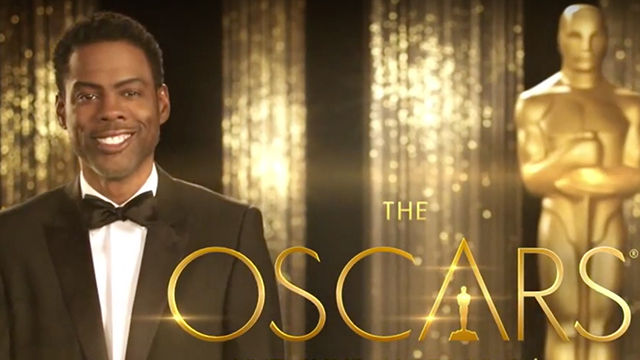The Oscars: Racial struggles of United States hit big screen
February 25, 2016
The United States is known for the entertainment value it brings not only to its citizens but to those around the world. Whether it is the variety of sports that are played in the states or the numerous films that are produced, there is something for everyone to enjoy.
The Oscars are the awards given out to award the best films this country and select other countries have produced in the past year. This year’s award’s program, hosted by Chris Rock, will begin at 7:30 p.m. Sunday on ABC. Red carpet coverage will begin at 6 p.m.
Though these films are watched by many different races of people throughout the country, only one race makes up 95 percent of the board — white.
The other demographic that dominates the board is men, whose average age is 60.
Most people believe this is why only white actors/actresses are up for nominations in this year’s Oscars.
In many ways, the times have changed, but the board’s perception toward films, actors/actresses and those deserving of awards have not changed.
The hashtag “#OscarsSoWhite” surfaced to reflect the controversy surrounding the prestigious awards. This has led some actors, celebrities and other big names to speak out and give their opinion on the issue.
One of the bigger names who spoke out about the issue was President Obama. His ideas boiled down to how blacks and other minorities are not getting a fair chance to show their talents or even have major roles written that require minorities.
“[The Oscars] makes for better entertainment,” Obama said. “It makes everybody feel part of one American family. So I think, as a whole, the industry should do what every other industry should do, which is to look for talent [and] provide opportunity to everybody.”
Actor/producer Matt Damon, a well-known face in the film business, had his own opinion on the issue. As an actor nominated for Best Actor in a Leading Role, Damon’s thoughts can be broken down to saying how the issue is “shameful and embarrassing.”
“We’re talking about huge systemic injustices around race and gender that are a lot bigger than the Oscars,” Damon told US Weekly.
Though the big story with this year’s Oscars revolves around a lack of racial diversity, there have also been issues regarding gender diversity.
Julie Delpy, French actress and screenwriter, made what some consider to be controversial comments of her own against the Oscars in 2014.
“Two years ago, I said something about the academy being very white-male, which is the reality, and I was slashed to pieces by the media,” Delpy told The Wrap. “It’s funny — women can’t talk. I sometimes wish I were African-American because people don’t bash them afterward. It’s the hardest to be a woman. Feminists is something people hate above all. [There is] nothing worse than being a woman in this business. I really believe that.”
She recently apologized to the media about her comments.
“It was never meant to diminish the injustice done to African-American artists … we should stay alert and united and support each other to change this unfair reality and don’t let anyone sabotage our common efforts by distorting the truth.”
Delpy was nominated for Best Writing and Adapted Screenplay in 2005 and 2014 for her films “Before Midnight” and “Before Sunset,” neither of which she won.
Most of these opinions seem to be true among ISU students, regardless of race, age or gender. Markus Flynn, president of the Black Student Alliance, summed it up by saying he does not support the Oscars, and anyone who has an issue with it should not either.
“Its a slap in the face, not just to actors and minority classes that are not being represented, but also to the public audience because ultimately the only voice that matters is that of the Oscars committee,” Flynn said.
“The judging panel is biased; it picks films and actors that suit them, and since they’re mostly male and white they will choose white actors/actresses,” Flynn said when asked about the committee in general. “Minorities will not be given a fair chance until either some current committee members are cycled out or the panel doesn’t stay biased.”
Flynn also noted that the Oscars should not be viewed as prestigious as they are, especially since they are not representing the American public fairly in terms of minority representation.
“Movies are made to cater to the wants of the committee.” Flynn said. “They are not made for the general public.”
Another group on campus, the ISU Film Producers Club, weighed in on the issue and pointed out how in the history of the Oscars, about 13 percent of winners are African-American. In comparison, a study showed that 14 percent of the United States is African-American.
The club’s president, Patrick Favo, also thought one of the issues was that films are not being made for the diverse public audience.
“America is known for its diversity among its citizens, so not representing them in something like film production is unfair and needs to be changed,” Favo said.
Favo concluded that it does not seem like Hollywood will change its ways anytime soon, and regardless of minorities being in films, big money is still being brought in by the public, which he said is the top priority of anyone in film production.
Members of the club pointed out that other minorities are also not being represented.
Asians have yet to win an award and have a nomination record of 1 percent compared to their population of 5 percent, according to the Daily Caller. Similarly, despite having a population of 16 percent in the United States, Hispanics have only a handful of nominations and wins.
One of the more notable Hispanic names associated with the Oscars is Emmanuel Lubezki, who has many Best Cinematography nominations. He took home the award for the film “Gravity” in 2013 and won again in 2014 for “Birdman.” “The Revenant” has him up for another potential award this year.
Another more recent Hispanic winner is Alejandro González Iñárritu for Best Director. He has had nominations for “Babel” in 2006, “Birdman” in 2014 and is up for nomination for “The Revenant.”
Asians haven’t had as much luck regarding the Academy Awards and are commonly nominated for categories such as Best Animation and Best Documentary.
The most recent award winners of Asian descent were Tom Cross for Best Film Editing in “Whiplash” and Ang Lee for Best Director in “Life of Pi”.
To stay up to date on the Oscars and for a full list of nominees, visit The Oscars’ website.















